The Chinese regime is selling off the people’s land at a furious pace to hike up the state’s gross domestic product (GDP) index, fill its coffers, and line officials’ pockets. Meanwhile, millions of ordinary people have become land grab victims, faced with displacement, destitution, and violent assault by callous officials if they resist eviction. The general public is becoming increasingly sensitive and outspoken.
In an online poll 7,500 Chinese were asked to summarize what the year 2010 meant to them. One fourth of respondents expressed their sentiments with the Chinese character “chai,” which means “demolish.” It indicates how forced demolition in China has become a profound and ever-present threat for ordinary people there.
All land in China is owned by the state. When one buys a home in China, technically one only owns the house—but only so long as it suits the government. At any time, the government can tell you that it wants its land back, as it has a more profitable use for it, and that your home will be bulldozed. Farmers can only lease the land, and when told to vacate, their livelihood is also threatened.
In 2010, local governments sold 1,652 square miles of land, over twice as much as in 2009. Revenues from land sales were 2.7 trillion yuan (approx. US$410 billion), accounting for 7.3 percent of the country’s GDP, according to official statistics .
Topping the list is Beijing, which sold 11.6 square miles of land last year, a 54.2 percent increase over 2009. In this densely populated city, where the per capita land area is less than 0.0003 square miles, this huge area of land sales amounts to about 40,000 people’s shares of land.
The land sale frenzy is driven by local government’s requirement to help keep the GDP numbers up and profiteer along the way. In 2010 the Beijing municipal government earned 90 billion yuan (US$14 billion) from land sales, or equal to 45.9 percent of its annual fiscal revenue.
In many other cities, income from land sales accounts for up to 60 percent of total revenues. For the central government, net profits from land sales are as high as 30 percent, according to state media .
Wealthy real estate investors, especially large state-owned enterprises, have been buying land even at record high prices, despite the central government’s repeated promises of cooling the housing market.
Land expropriation is pushing the lower income classes into abject poverty and is a threat to China’s social stability.
Victims of relocation say the compensation they are given is not nearly enough to purchase a comparable home in the same region. Farmers who had to leave their land also say that it is extremely difficult to find a job or to support their families on the scant government compensation.
Though no statistics have been published on the fairness of land compensation, a recent State Council research study indicates that only 5 to 10 percent of income from land sales was allocated as compensation to farmers, while the government and developers shared the rest.
In a Jan. 7 national conference , Xu Shaoshi, the head of the Ministry of Land and Resources, described China’s land transfer system as “allocating profits unfairly” and “causing sharp social conflicts.”
Next: Bloody House Map
Many farmers choose to hold their ground against the authorities and refuse to move away until compensation disputes are settled.
But the local authorities’ solution to settle disputes is chillingly simple: force. The common practice, according to multiple media reports and blogs, is to use law enforcement or hired gangsters to force the residents out of their homes before bulldozing the houses, or to drive away farmers and start construction on the disputed farmlands. Many such cases end in violent confrontation. In a desperate attempt to save their homes, a number of people have set themselves on fire.
Though the regime reveals no statistics about land disputes and forced demolition, citizens’ grassroots efforts have started documenting such cases.
An anonymous blogger marked some forced demolition cases on a Google map, naming it “Xue Fang Ditu,” or “Bloody House Map.” The map is open to other netizens to add new demolition cases with detailed descriptions. The original blogger also maintains a second, closed, map that keeps track of the cases reported by the media.
By Jan. 20, the open map had accumulated more than 200 cases, 84 of which also went onto the closed map.
Two recent death cases connected to forced demolition and land expropriation have caused outrage in China and also made world headlines. Both victims died from being run over by heavy equipment.
Photos of village chief Qian Yunhui of Zhaiqiao Village, Zhejiang Province, crushed under the wheel of a fully loaded gravel truck were widely circulated at the end of 2010, shocking Chinese netizens. Since 2004 Qian had petitioned authorities over land disputes between his village and a government-backed power plant. For this he had been jailed multiple times.
Qian died on Christmas Day. Witnesses said Qian was held to the ground by three masked men who then ordered the truck to run him over. Authorities said his death was an accident.
Just days later, a woman in Henan Province was run over by a bulldozer when she and townspeople tried to stop a government river expansion project. Armed police and government officials supervising the construction did nothing to stop the machine, or to help the woman. Some policemen were caught on camera laughing when the woman was crushed. The 38-year-old victim, a mother of two, died soon after.
One of the witnesses told a TV reporter that an official at the site said: “They crush one, I’ll take responsibility. They crush two, I’ll also take responsibility. If they crush eight or ten, nobody will dare to try stop the project anymore.”
Another government official had as similar response shortly after three people in his county set themselves on fire in protest of the government’s forced demolition. He said in a written statement to the media: “If there’s no forced demolition, there’ll be no urbanization, and no urbanization, no New China. Therefore, if there’s no forced demolition, there’s no New China,” and that the incident was “nothing but another victim of China’s urbanization process.”
[email protected]
In an online poll 7,500 Chinese were asked to summarize what the year 2010 meant to them. One fourth of respondents expressed their sentiments with the Chinese character “chai,” which means “demolish.” It indicates how forced demolition in China has become a profound and ever-present threat for ordinary people there.
All land in China is owned by the state. When one buys a home in China, technically one only owns the house—but only so long as it suits the government. At any time, the government can tell you that it wants its land back, as it has a more profitable use for it, and that your home will be bulldozed. Farmers can only lease the land, and when told to vacate, their livelihood is also threatened.
Land Sales and GDP
In 2010, local governments sold 1,652 square miles of land, over twice as much as in 2009. Revenues from land sales were 2.7 trillion yuan (approx. US$410 billion), accounting for 7.3 percent of the country’s GDP, according to official statistics .
Topping the list is Beijing, which sold 11.6 square miles of land last year, a 54.2 percent increase over 2009. In this densely populated city, where the per capita land area is less than 0.0003 square miles, this huge area of land sales amounts to about 40,000 people’s shares of land.
The land sale frenzy is driven by local government’s requirement to help keep the GDP numbers up and profiteer along the way. In 2010 the Beijing municipal government earned 90 billion yuan (US$14 billion) from land sales, or equal to 45.9 percent of its annual fiscal revenue.
In many other cities, income from land sales accounts for up to 60 percent of total revenues. For the central government, net profits from land sales are as high as 30 percent, according to state media .
Wealthy real estate investors, especially large state-owned enterprises, have been buying land even at record high prices, despite the central government’s repeated promises of cooling the housing market.
Social Inequity
Land expropriation is pushing the lower income classes into abject poverty and is a threat to China’s social stability.
Victims of relocation say the compensation they are given is not nearly enough to purchase a comparable home in the same region. Farmers who had to leave their land also say that it is extremely difficult to find a job or to support their families on the scant government compensation.
Though no statistics have been published on the fairness of land compensation, a recent State Council research study indicates that only 5 to 10 percent of income from land sales was allocated as compensation to farmers, while the government and developers shared the rest.
In a Jan. 7 national conference , Xu Shaoshi, the head of the Ministry of Land and Resources, described China’s land transfer system as “allocating profits unfairly” and “causing sharp social conflicts.”
Next: Bloody House Map
Bloody House Map
Many farmers choose to hold their ground against the authorities and refuse to move away until compensation disputes are settled.
But the local authorities’ solution to settle disputes is chillingly simple: force. The common practice, according to multiple media reports and blogs, is to use law enforcement or hired gangsters to force the residents out of their homes before bulldozing the houses, or to drive away farmers and start construction on the disputed farmlands. Many such cases end in violent confrontation. In a desperate attempt to save their homes, a number of people have set themselves on fire.
Though the regime reveals no statistics about land disputes and forced demolition, citizens’ grassroots efforts have started documenting such cases.
An anonymous blogger marked some forced demolition cases on a Google map, naming it “Xue Fang Ditu,” or “Bloody House Map.” The map is open to other netizens to add new demolition cases with detailed descriptions. The original blogger also maintains a second, closed, map that keeps track of the cases reported by the media.
By Jan. 20, the open map had accumulated more than 200 cases, 84 of which also went onto the closed map.
Callous Officials
Two recent death cases connected to forced demolition and land expropriation have caused outrage in China and also made world headlines. Both victims died from being run over by heavy equipment.
Photos of village chief Qian Yunhui of Zhaiqiao Village, Zhejiang Province, crushed under the wheel of a fully loaded gravel truck were widely circulated at the end of 2010, shocking Chinese netizens. Since 2004 Qian had petitioned authorities over land disputes between his village and a government-backed power plant. For this he had been jailed multiple times.
Qian died on Christmas Day. Witnesses said Qian was held to the ground by three masked men who then ordered the truck to run him over. Authorities said his death was an accident.
Just days later, a woman in Henan Province was run over by a bulldozer when she and townspeople tried to stop a government river expansion project. Armed police and government officials supervising the construction did nothing to stop the machine, or to help the woman. Some policemen were caught on camera laughing when the woman was crushed. The 38-year-old victim, a mother of two, died soon after.
One of the witnesses told a TV reporter that an official at the site said: “They crush one, I’ll take responsibility. They crush two, I’ll also take responsibility. If they crush eight or ten, nobody will dare to try stop the project anymore.”
Another government official had as similar response shortly after three people in his county set themselves on fire in protest of the government’s forced demolition. He said in a written statement to the media: “If there’s no forced demolition, there’ll be no urbanization, and no urbanization, no New China. Therefore, if there’s no forced demolition, there’s no New China,” and that the incident was “nothing but another victim of China’s urbanization process.”
[email protected]
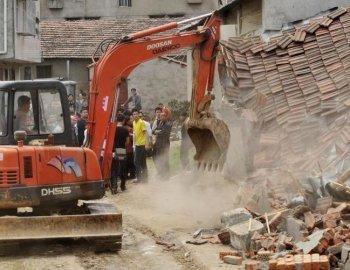
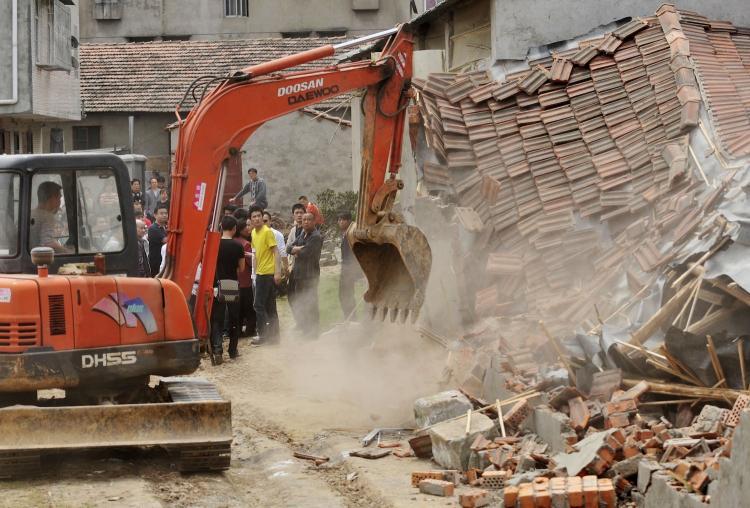
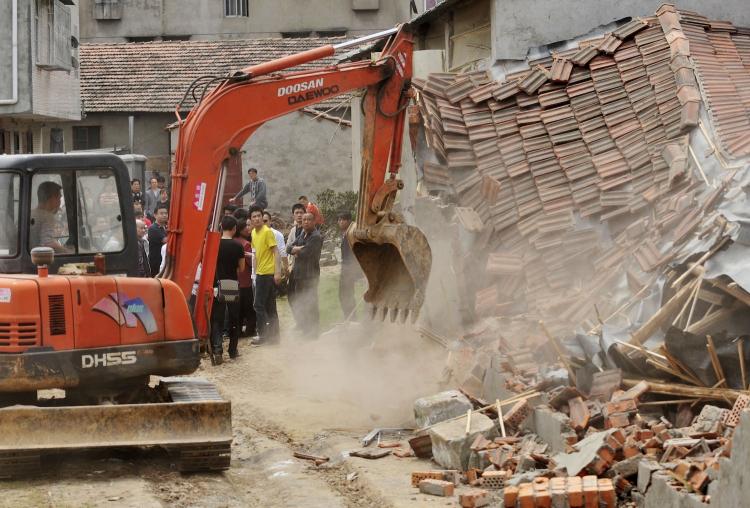


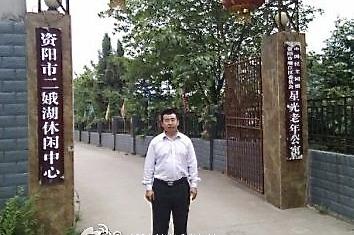
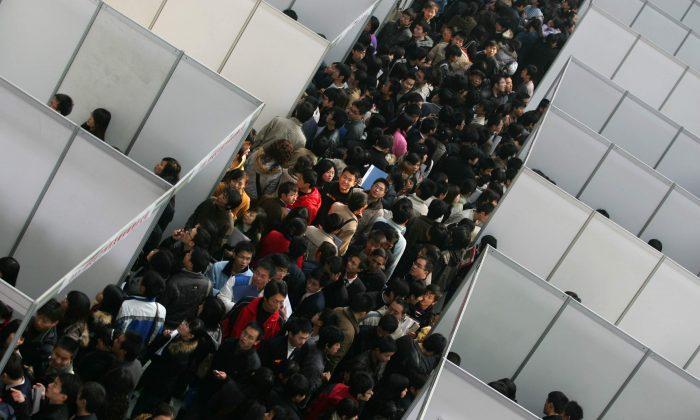
Friends Read Free